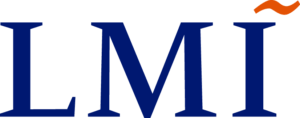Today, more and more companies are turning to mentoring to elevate their DEI strategy within their employee experience. For government consultancy LMI, formalizing their already existing informal mentoring culture in order to serve their diversity, equity, inclusion and accessibility (DEI&A) objectives just made sense.
Founded in 1961 to help the Department of Defense resolve complex logistics management challenges, LMI continues to enable growth and transformation, enhance operational readiness and resiliency, and ensure mission success for federal civilian and defense agencies. But they’re not just focused on these attributes for their clients. When it comes to readiness and resiliency, LMI believes in applying the right training and resources to meet the needs of their employees as well.
We asked Beth Hoban, director of talent management at LMI, to take us through how they came to mentoring as an engagement solution, and why LMI has specifically applied it in creating a more inclusive employee journey.
Mentoring format: 1:1
Number of Participants: 213
Type of Matching: Hybrid Match
Duration of Mentoring Connections: 27 Weeks
1. What sort of role has mentoring played in your life up to this point?
Over my more than 20-year career, I have had several formal and informal mentors and served as a mentor myself. Mentors’ support, advice, role-modeling and encouragement have shaped the professional that I am today. My biggest takeaway and the common thread from all my mentoring relationships was the inspiration to play bigger roles and push myself in new and exciting ways.
2. What was the reason LMI started a formal mentoring program for employees?
Prior to our formal mentoring program, we supported several informal efforts. LMI’s devotion to establishing programs and tools to cultivate diversity, equity, inclusion, and accessibility (DEI&A) for our employees drove us to grow those existing ideas into a fully realized concept. As one of our six diversity, equity, inclusion, and accessibility commitments, LMI created a formal mentoring program to foster our learning culture, promote employee engagement, encourage knowledge sharing, and afford more significant professional development and growth opportunities.
3. How did you go about promoting your mentoring program before and after the launch of it?
Prior to launching MentorConnect™, LMI announced our six commitments to DEI&A and the upcoming mentoring program on our external company website. Our MentorConnect™ team developed a robust engagement plan to promote our program internally through:
-
-
- quarterly town halls
- the weekly company newsletter
- our intranet website
- employee onboarding
- affinity groups
- leader meetings
- an introductory video from senior leaders
- program information sessions
- program training on optimizing use of our Chronus mentoring platform
-
We had great sponsorship from our senior leaders, who serve as mentors and encourage their team members at all levels to participate. We integrated this program into our talent initiatives to offer a seamless employee development experience and maximize career enhancement.
4. What is one thing you wish you knew before launching a mentoring program?
We quickly learned the importance of implementing additional engagement activities between the mentor and mentee community to foster meaningful connections (learning labs, networking events, speaker series, seminars and mentoring MS Teams channels). We developed these activities throughout our first pilot cohort to keep up program momentum.
5. How did you utilize Mentoring Champions in spreading the word about the mentoring program, and recruit/embolden them to be advocates?
A key to our success is having an executive sponsor (at the vice president level) from our senior leadership team, in addition to our chief human resources officer, serve as our champions. We have additional mentoring champions throughout the organization who promote the program. We solicited voluntary participation, with the many employees showing high interest in learning more about the program and becoming involved.
Our champions tested our program and helped us refine our resource tools and matching algorithm. We plan to keep expanding our pool of mentoring champions as the program grows.
6. What are LMI’s key metrics for a successful mentoring program?
The mentoring program was a fundamental commitment to our organization’s DEI&A goals. One of our primary success metrics is the diversity of mentor and mentee participants. Our first mentee cohort had a significantly higher percentage of women and minorities than our general employee population.
Program interest and participation are also key metrics. We initially sought to establish 50 mentoring connections. We more than doubled that number in the first year.
We also review:
-
-
- additional representation across all LMI departments and job levels
- active/ongoing participation across the mentor and mentee community
- participant retention rates
- engagement rates among active mentors and mentees
-
7. What is the biggest impact mentoring software has had on mentoring in your organization?
The easy-to-use Chronus platform, fantastic learning resources and the stellar support of customer success partner Teri Young were foundational for our success. Through this support, we crafted a dynamic program that exceeded our expectations. Young’s advice assisted us in developing our mentor matching algorithm and customizing the program to address our specific needs.
Enrollment has been easy since the software automatically populated users’ HRIS data, including their profiles and certifications. Our users also appreciate:
-
-
- the single sign-on features
- the look and feel of the platform
- our brand customizations
-
From the administrative perspective, we value the status dashboards, the seamless data synchronization with our HRIS system, and the ease of modifying resources and adjusting as needed. The survey tools supply critical and vital insights, while the administrator inbox feature streamlines communications through a single point of contact.
The program fosters meaningful employee relationships across the organization and beyond departments, while benefiting professional development and growth.
8. Beyond your career mentoring program, how else are you looking to evolve successful mentoring programs across your employee experience?
Beyond our one-on-one mentoring program, LMI will formally launch an additional mentoring track—Mentoring Circles—in the first quarter of this year. We will pilot this program with our affinity groups and communities of practice to foster employee engagement, strengthen personal relationships, and create small environments for group members to collaborate and learn about a common area of interest.
9. What advice do you have for other professionals looking to launch successful mentoring programs?
In addition to launching a formal mentoring system, commit to engaging actively and connecting the mentor and mentee community. Mentoring programs require constant care and energy for success. Start with a pilot group to explore the new mentoring system and challenge areas, then expand the program throughout the company. Develop a solid working relationship with your customer success partner. In working with Chronus, they have provided excellent guidance to ensure that our people and our program succeed!
Want to learn how the Chronus platform can elevate your mentoring program? Request Demo Today!

